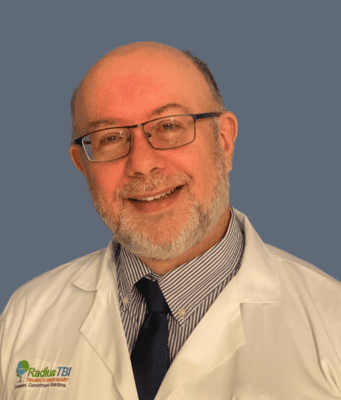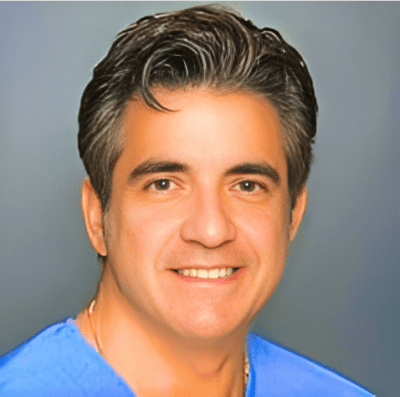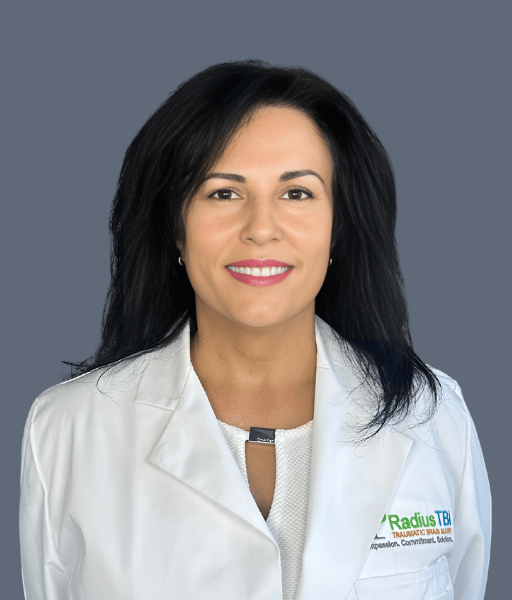
Sally P. Duarte, PhD
Research Scientist
Dr. Sally P. Duarte is an accomplished research scientist with extensive involvement in diverse neuroscience projects. Her work includes multi-feature neural encoding, seizure initiation factors, data visualization tools, fuzzy track initiation techniques, end-of-cycle predictions, and real-time process monitoring. Dr. Duarte's expertise in data analysis, modeling, and algorithm development has significantly contributed to advancements in these critical fields.
SALLY P. DUARTE, PHD
EDUCATION:
Machine Learning A-Z: Hands-On Python and R in Data Science, Udemy Inc., Online
PhD: (Neuroscience), University of Rochester, Rochester, NY
M.Eng.: (Electrical Engineering), McMaster University, Hamilton, ON
B.Eng.: (Electrical Engineering), McMaster University, Hamilton, ON
WORK EXPERIENCE:
Research Associate (11/2018 – Present)
Biomedical Engineering, Florida International University, Miami, FL
• Oversee and participate in multiple research projects, including visual encoding of natural scenes, dimensionality reduction of population neural recordings, and modeling dynamics of calcium activity in astrocytes
• Establish data pipelines, computational tools, and algorithms for processing large, high-dimensional data sets
• Preparation of draft paper on mesoscale imaging
• Presentation of research at the University of Miami Neural Engineering Research Symposium and winner of 2nd Place Poster Presentation
• Train and mentor graduate students in all aspects of scientific research, including sterile surgery and experiments
• Lead role in moving the lab to a new location in 2018-2019 and reinstating research activities
• General lab management, including safety and regulatory compliance, inventory, documenting all procedures, managing personnel, etc.
Post-Doctoral Associate (03/2013 – 11/2018)
Max Planck Florida Institute for Neuroscience Research, Jupiter, FL
• Lead scientist on a project exploring how multiple features of a visual image are encoded in the primary visual cortex, including formulating primary questions, designing experiments, collecting data, and conceiving a novel way in which to analyze high dimensional data sets and visualize results
• Prepared manuscript demonstrating novel findings on visual encoding
• Collaborated in building an experimental station, including a two-photon laser microscope with wide-field imaging and electrophysiology capabilities
• Established new protocols for conducting sterile surgery and trained other lab members
• Founding member and President of the Post-Doctoral Association
PROJECTS:
Multi-Feature Neural Encoding of the Visual World
• large, high dimensional data sets, image processing, information encoding
Neural Factors Contributing to Seizure Initiation
• image/video processing, dynamical systems modeling, statistical analysis, electrophysiology, signal processing
Development of Data Visualization and Analysis Tool for Vestibular Research Lab
• front and back-end tool development, data wrangling, data pipeline
Fuzzy Track Initiation Techniques for Air Surveillance Radar
• small, sparse data sets, machine learning, clustering, classification, pattern recognition, fuzzy logic, novel algorithm development
End of Cycle Prediction of Steel Coil Annealing Process
• data mining, predictive modeling, real-time numerical analysis
Real-Time Process Monitoring for General Motors Car Assembly Plant
• GUI development, real-time data acquisition, PLC programming
Language:
English
Research scientists play a crucial role at Radius TBI for several reasons. Their presence and contributions are instrumental in advancing the understanding and treatment of traumatic brain injury (TBI) and concussion.
Here are some key reasons why research scientists are an integral part of the team:
Advancing Knowledge: Research scientists at Radius TBI conduct scientific studies and investigations to expand the knowledge base on TBI and concussions.
Through their research, they strive to uncover new insights, discover underlying mechanisms, and identify practical treatment approaches. This continuous pursuit of knowledge helps improve the understanding of TBI and facilitates the development of innovative solutions.
Developing Evidence-Based Practices: Research scientists play a vital role in translating scientific findings into evidence-based practices.
They conduct rigorous studies, analyze data, and generate evidence that informs clinical decisions and treatment protocols. Their work helps shape the best practices in TBI care, ensuring that patients receive the most effective and up-to-date treatments.
Enhancing Treatment Outcomes: By conducting research, scientists at Radius TBI aim to improve treatment outcomes for TBI patients. They explore novel therapeutic interventions, evaluate their efficacy, and identify factors influencing recovery.
This research-driven approach enables the development of targeted treatment plans that maximize the potential for successful rehabilitation and better overall patient outcomes.
Collaborating with Other Institutions: Research scientists at Radius TBI often collaborate with other research institutions, universities, and organizations in brain injury research.
These collaborative efforts foster knowledge exchange, promote interdisciplinary research, and accelerate advancements in TBI care. Such collaborations also facilitate access to wider resources, expertise, and funding opportunities.
Contributing to Scientific Literature: Research scientists at Radius TBI actively publish their findings in scientific journals and present their work at conferences and symposiums.
This dissemination of research contributes to the scientific literature, allowing other professionals and researchers worldwide to benefit from the insights and discoveries made at Radius TBI. It also encourages further scientific inquiry and collaboration.
Overall, research scientists at Radius TBI are pivotal in advancing TBI research, improving treatment outcomes, and driving evidence-based practices.
Their work is essential in pushing the boundaries of knowledge, fostering innovation, and ultimately enhancing the quality of care provided to individuals with TBI and concussion.
DID YOU KNOW?
Falls are one of the leading causes of TBI-related hospitalizations among Americans, especially among older adults (age 75 years and older). Source: www.cdc.gov
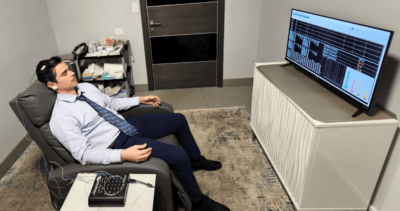
QEEG Brain Map Interpretation
In the world of neuroscience, one of the advanced tools used to understand brain function is the Quantitative Electroencephalogram (QEEG), often referred to as brain mapping. But who interprets these intricate brain maps, and why is their expertise crucial?
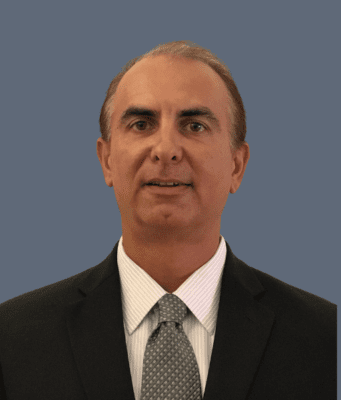
Meet Our No.1 Best Neuropsychologist in Tampa, FL Location
At Radius TBI, we pride ourselves on providing exceptional care for individuals suffering from traumatic brain injuries (TBI) and concussions. Our integrated medical team in Tampa, FL, includes some of the most respected and experienced professionals in the field, ensuring comprehensive and personalized care for
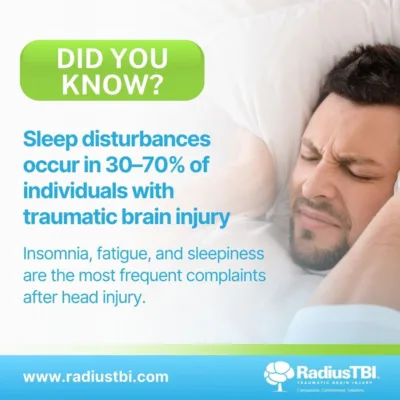
Sleep Disturbance
Did you know? Dealing with a traumatic brain injury (TBI) often means navigating a range of complications, one of the most prevalent being sleep disturbances. Surprisingly, 30-70% of individuals with a TBI experience some form of sleep disruption according to a study published on NCBI.
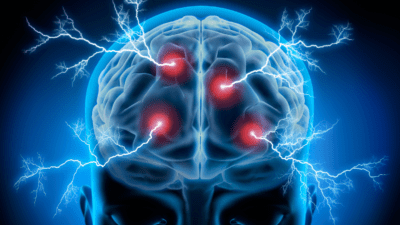
Understanding Routine EEG, QEEG, and Ambulatory EEG Tests
EEG, QEEG, and Ambulatory EEG are distinct forms of electroencephalography, each serving unique purposes in the diagnosis and monitoring of neurological conditions.
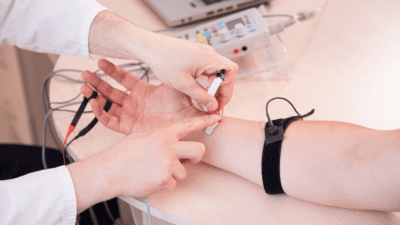
A Deep Dive into Electromyography (EMG Test): Decoding the Language of Muscles and Nerves
Electromyography (EMG) is a diagnostic procedure that plays a crucial role in unraveling the intricacies of the neuromuscular system. By measuring the electrical activity within muscles and the nerves controlling them, EMG provides valuable insights for the diagnosis and management of various neuromuscular disorders.
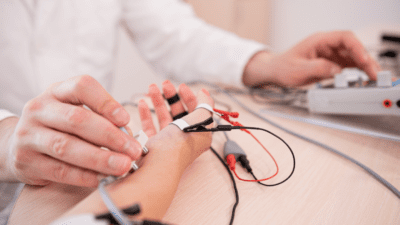
Precise Diagnostics, Proactive Care: Nerve Conduction Velocity NCV Testing Solutions in Florida
The Nerve Conduction Velocity (NCV) test is a diagnostic procedure designed to assess the speed at which electrical impulses travel along nerves. This test is an integral component of neurophysiological studies, providing crucial insights into the functioning of the peripheral nervous system.
Fort Lauderdale Medical Team
Radius TBI comprises a multidisciplinary medical team of neurology, neuropsychology, audiology, neuro-ophthalmology, psychology, and physical therapy dedicated to providing outstanding medical care and improving the quality of life in patients suffering from traumatic brain injury (TBI) and concussion.
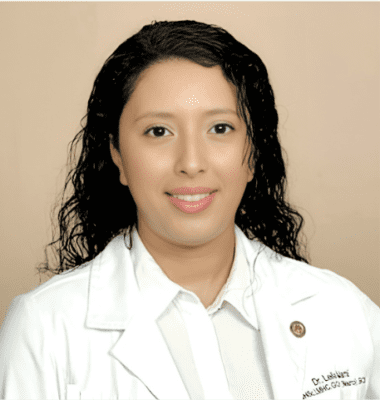
CLINICAL PHYSIOLOGIST / PSYCHOTHERAPIST / MENTAL HEALTH COUNSELOR: Leila Alami, DHSc, LMHC, GradCert(Neuro), BCN
DHSc: Doctor of Health Science, Specialty in Neurological Functions, Nova Southeastern University, College of Health Care Sciences, Ft. Lauderdale, FL
MS: Mental Health Counseling, Nova Southeastern University, Ft Lauderdale, FL


